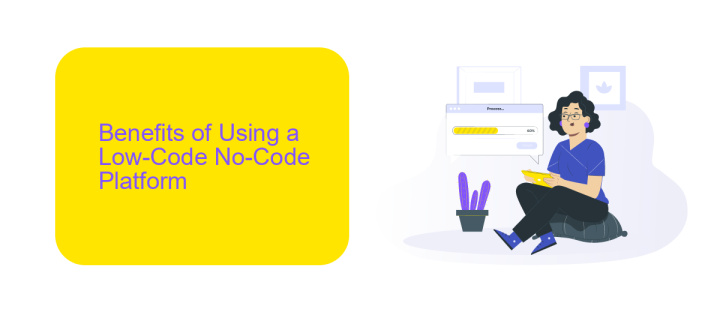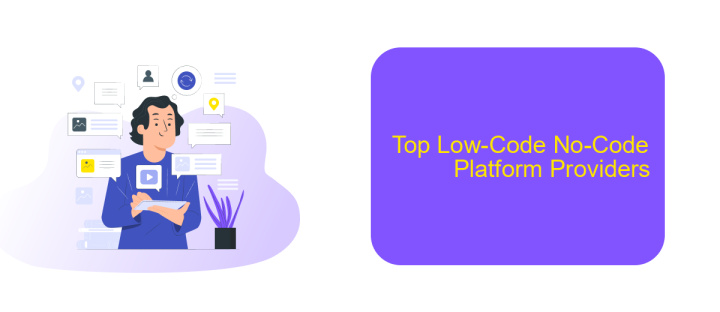Low-Code No-Code Platform Services
Low-Code No-Code (LCNC) platform services are revolutionizing the way businesses develop software by enabling users to create applications with minimal or no coding skills. These platforms empower non-technical users and accelerate development processes, making it easier to innovate and adapt to changing market demands. In this article, we explore the benefits, key features, and potential impact of LCNC platforms on modern enterprises.
What is a Low-Code No-Code Platform?
Low-Code No-Code platforms are innovative solutions designed to simplify the software development process. These platforms enable users to create applications with minimal coding knowledge, making software development accessible to a broader audience.
- Drag-and-drop interface for easy design.
- Pre-built templates and modules.
- Integration with various third-party services.
- Automated workflows and processes.
One of the key features of Low-Code No-Code platforms is their ability to integrate seamlessly with other services. For instance, ApiX-Drive allows users to set up integrations without any coding, connecting various applications and automating data transfer between them. This enhances the functionality of Low-Code No-Code platforms, making them a powerful tool for businesses looking to streamline their operations.
Benefits of Using a Low-Code No-Code Platform

Using a Low-Code No-Code platform offers numerous benefits, particularly in accelerating the development process. These platforms enable users to create applications without extensive coding knowledge, which significantly reduces the time and cost associated with traditional software development. By leveraging visual development tools and pre-built templates, businesses can quickly prototype, test, and deploy applications, leading to faster innovation and time-to-market.
Another key advantage is the ease of integration with other services and systems. For instance, platforms like ApiX-Drive facilitate seamless connections between various applications, enabling automated workflows and data synchronization. This not only enhances operational efficiency but also ensures that different software components work harmoniously. Moreover, the user-friendly interfaces and drag-and-drop functionalities make it accessible for non-technical staff, empowering a broader range of employees to contribute to the digital transformation efforts.
Challenges of Low-Code No-Code Platforms

Despite their many advantages, Low-Code No-Code (LCNC) platforms come with their own set of challenges. These platforms aim to simplify application development, but they are not without limitations that can impact their effectiveness and adoption.
- Scalability Issues: LCNC platforms may struggle to handle large-scale applications, limiting their use in enterprise environments.
- Limited Customization: While these platforms offer a range of pre-built components, they often lack the flexibility for deep customization, which can be a constraint for complex projects.
- Integration Challenges: Integrating LCNC platforms with existing systems can be cumbersome. Services like ApiX-Drive can help streamline these integrations, but the process can still be complex.
- Security Concerns: The abstracted nature of LCNC platforms can make it difficult to implement advanced security measures, posing risks for sensitive applications.
- Vendor Lock-In: Relying heavily on a single LCNC platform can lead to vendor lock-in, making it challenging to switch providers or migrate applications.
While LCNC platforms offer significant benefits in terms of speed and accessibility, it is crucial to be aware of their limitations. Addressing these challenges through careful planning and the use of supplementary tools like ApiX-Drive can help maximize the potential of LCNC solutions.
Top Low-Code No-Code Platform Providers

Low-code and no-code platforms have revolutionized the way businesses approach application development, providing tools that significantly reduce the need for extensive coding knowledge. These platforms empower users to create, customize, and deploy applications quickly and efficiently, making technology more accessible to a broader audience.
Several providers stand out in the low-code and no-code landscape, each offering unique features that cater to different business needs. These platforms are designed to streamline workflows, enhance productivity, and integrate seamlessly with existing systems.
- Mendix: Renowned for its comprehensive suite of tools that support both citizen developers and professional developers.
- OutSystems: Offers advanced features for enterprise-grade applications with robust security and scalability.
- Appian: Known for its powerful process automation and integration capabilities.
- ApiX-Drive: Specializes in setting up integrations, allowing users to connect various applications without coding knowledge.
- Microsoft Power Apps: Part of the Microsoft Power Platform, it provides extensive integration with other Microsoft services.
Choosing the right low-code or no-code platform depends on your specific requirements, such as ease of use, integration capabilities, and scalability. Providers like ApiX-Drive are particularly beneficial for businesses looking to simplify the integration process, ensuring seamless connectivity between various applications.
Choosing the Right Low-Code No-Code Platform
Choosing the right Low-Code No-Code (LCNC) platform requires careful consideration of your specific needs and objectives. Start by identifying the primary use cases for the platform, such as app development, process automation, or data integration. Evaluate the platform's ease of use, scalability, and support for various integrations. Platforms like ApiX-Drive can be particularly beneficial if your goal includes seamless integration with other services, as it simplifies the process of connecting different applications and automating workflows.
Another crucial factor is the platform's flexibility and customization options. Ensure it offers a range of pre-built templates and components that can be tailored to your unique requirements. Additionally, assess the platform's security features, compliance standards, and community support. A strong user community and comprehensive documentation can significantly enhance your experience and help you overcome potential challenges. By carefully evaluating these aspects, you can select an LCNC platform that aligns with your business goals and technical requirements.
FAQ
What is a Low-Code/No-Code platform?
Who can benefit from using Low-Code/No-Code platforms?
How do Low-Code/No-Code platforms ensure data security?
Can Low-Code/No-Code platforms be used for automation and integration?
What types of applications can be built with Low-Code/No-Code platforms?
Strive to take your business to the next level, achieve your goals faster and more efficiently? Apix-Drive is your reliable assistant for these tasks. An online service and application connector will help you automate key business processes and get rid of the routine. You and your employees will free up time for important core tasks. Try Apix-Drive features for free to see the effectiveness of the online connector for yourself.

